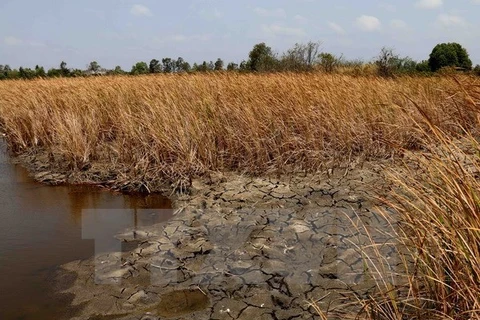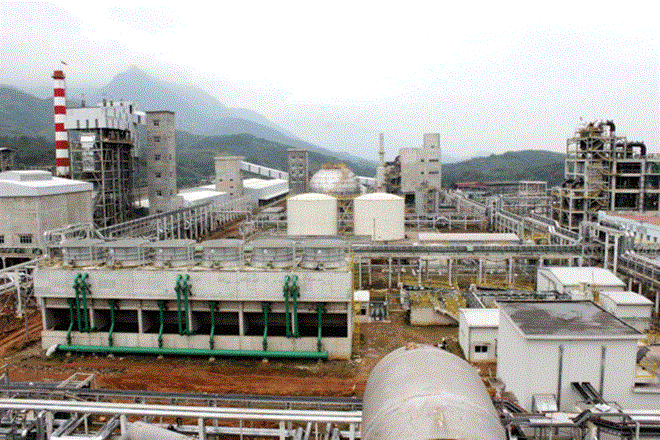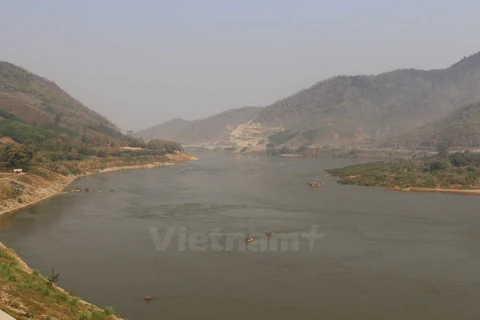 Delegates at the opening ceremony of the Green Technologies for Sustainable Water Conference in Hanoi. (Photo: VNA)
Delegates at the opening ceremony of the Green Technologies for Sustainable Water Conference in Hanoi. (Photo: VNA) Hanoi (VNA) - Some 150 scientists gathered in Hanoi to discuss how to develop environmentally friendly, economically viable and energy efficient process to treat and preserve the world’s limited water resources.
The three-day conference on Green Technologies for Sustainable Water 2017 (GTSW) that began on October 14 was organised by five universities – the University of Technology Sydney, University of Wollongong, Tianjin Polytechnic University, Vietnam’s University of Science and Vietnam-Japan University (VJU).
Speaking at the opening ceremony, VJU rector Furuta Motoo said the development of environment-friendly technologies for water resource utilization and management is of vital importance in the context of population growth. With global water resources being gradually depleted, especially for countries strongly affected by climate change like Vietnam, demand risks exceeding supply.
“There is an urgent need to exploit and develop appropriate green technologies that promote design, production and supply chain because the major cause of the world’s water shortage and continued environmental deterioration is the unsustainable, unregulated pattern of consumption and production,” said Executive chair of the GTSW 2017 conference, Ngo Huu Hao.
The limitations on the amount of fresh water from natural sources forced the water industry to expand supplementary sources, such as rainwater, storm water, desalinated water or recycled water, which in most cases need extensive treatment to ensure human health and environmental safety, he added.
Prof Ashok Pandey from India’s Centre of Innovative and Applied Bioprocessing, one of the 150 scientists participating in the conference, presented microalgae-based research, which he said has extensively progressed for the production of value added products and biofuels.
“Coupling mass cultivation of microalgae along with industrial waste waters, seawater with industrial waste carbon sources seems to be beneficial for minimizing the use of fresh water, reducing carbon, nutrient cost and producing algal biomass as resources for biofuels and other high commercial value metabolities,” he said.
Prof Xiaochang C.Wang from China’s Xi’an University of Architecture and Technology presented anaerobic digestion of waste-to-resource recycling from food waste.
Food waste contains recoverable resources and anaerobic digestion is a promising technology. A combination of food waste treatment and waste-activated sludge treatment by anaerobic digestion could become the new direction of urban waste management through which the utilizable bio-resource can be recovered for both nitrification enhancement and bio-energy production.
Dang Bao Trong from HCM City University of Technology presented a study evaluating the treatment performance of sponge membrane bioreactors in treating hospital wastewater with elevated concentrations of ciprofloxacin (CIP) – a widely used antibiotic in Viet Nam.
High concentration of various antibiotics has been detected in wastewater of healthcare facilities in HCM City. The average concentration of CIP in hospital wastewater in HCM City was 4-5 times greater than in other Asian countries, he said.
Sponge membrane bioreactors have been reported as an effective biological treatment process for hospital waste water treatment.
Besides presentations, lectures and reports, participants are also visiting the Yen So Waste Water Treatment Station in Hanoi to learn about local water management and treatment.-VNA
VNA























